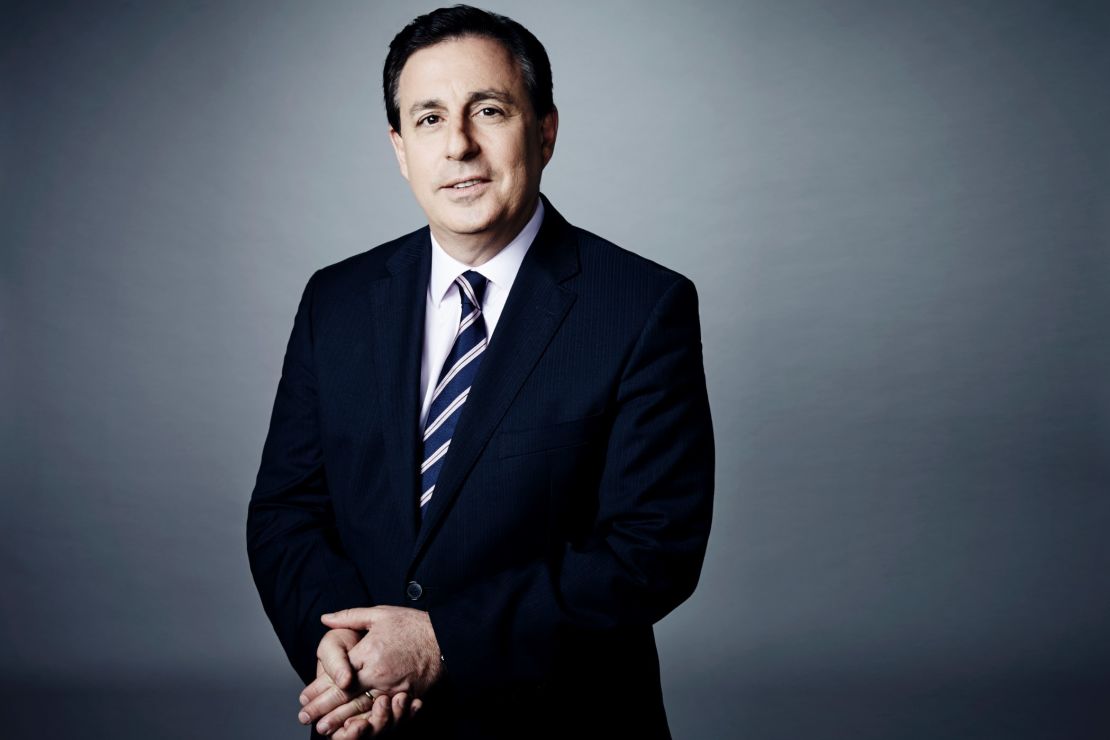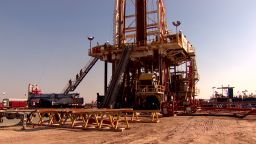Editor’s Note: John Defterios is CNN’s Emerging Markets Editor and host of Global Exchange, Marketplace Middle East and One Square Meter. Follow John on Twitter.
Story highlights
ISIS controls several oil fields in Iraq and Syria, which it is using to finance its terror operations
However running refineries is difficult and ISIS has suffered setbacks in areas such as Baiji
It is estimated to be earning more than $3 million a day in black market oil sales
It may be struggling to increase that -- but the funds are plenty to finance its terror operation
ISIS videos are part of today’s new reality. One of the many to hit social media has the viewer hearing a recitation of Quranic verses describing a jihad in the battle for Syria’s Al Omar energy facility. Syria’s largest oil field is one of a handful now under the firm grip of the terrorist organization.
ISIS may not be operating the type of polished pipeline infrastructure one would find in southern Iraq around Basra, but Iraqi oil ministry officials say an old fashioned truck network for this crude is active and serving distribution needs.
And now, after nearly three months of heated battle in Iraq, one can see a clearer picture of where ISIS stands as an energy player.

It popped up on the global radar in June by seizing assets in Iraq, but building on those early gains, according to a number of energy sources, is proving difficult. August was not a good month for ISIS.
It lost its battle for one of Kirkuk’s big fields, with potential production of 600,000 barrels a day, and could not keep control of Iraq’s largest refinery at Baiji, on the main road to Mosul.
What they do hold, Iraqi officials suggest, will need maintenance. So far, it is getting that work done only through intimidation of on-site engineers who are not loyal to the ISIS cause. ISIS’ income from oil is falling as they struggle to control the personnel within refineries, according to Assim Jihad, a spokesman at Iraq’s Oil Ministry.
“At first they got a large sum of money by seizing inventories, but this cannot last,” he added.
The Iraq Energy Institute estimates ISIS is producing about 30,000 barrels a day in Iraq and 50,000 daily in Syria. On a black market price of $40 a barrel, it is earning $1.2 million a day in Iraq and $2 million in Syria.
Energy traders and regional security specialists tell me supplies are being funneled into regional oil importing countries of Jordan, Turkey, and Syria.
“They use oil tank trucks instead of oil pipes. There are about 210 oil tank trucks smuggling oil to Turkey and other places every day,” Hussein Allawi, Baghdad manager of the Iraq Energy Institute told me.
The transport may be rudimentary, but this network of black market traders stretches back to the days of Saddam Hussein, when Iraq was under UN sanctions in the 1990s.
“We are not talking about people who own a couple of trucks and tanker trucks,” said Kate Dourian, senior editor at the Middle East Economic Survey. “We are talking about certain market-oriented people who have organizations that trade in illegal oil.”
ISIS has taken a page from Hussein’s war playbook, when he left Kuwait. Still pictures of fields torched have emerged this week of fields outside of Mosul when it was pushed out by Iraqi forces.
Oil strategists say Iraq’s national military and the Peshmerga forces of the Kurdish region are trying to strike a fine balance. They want to keep ISIS out of their prized fields and refineries, but they don’t want to destroy infrastructure which would take years and millions of dollars to rebuild.
While ISIS has clearly suffered setbacks, there is also a stark reality.
The organization may be falling short of designs to become a “state” oil company, but revenue of over $3 million a day can certainly finance its operation of terror.
READ MORE: How Iraq’s black market in oil funds ISIS







